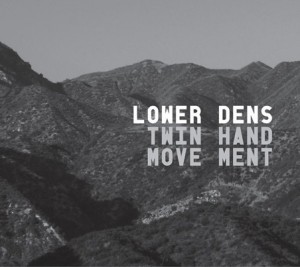 Rating:
Rating: 




I’ll be the first to admit that I haven’t quite gotten on the Beach House bandwagon. In the past, their dreamy bedroom pop has just seemed far too dull for me to ever fully absorb; I’ll admit that’s a fault of my own and not the music. Yet listening to Teen Dream, something else unfolds. There isn’t some grand gesture that comes out of nowhere; it’s just that the logical progression of the group has finally caught up with my own personal tastes.
From the opening moments that the guitar comes into play on “Zebra” I found myself captivated immediately. Gentle “ahhhs” in the background create a perfect introduction to the song, allowing for the vocals to carry the song the rest of the way. Sure, it’s not the most moving song in the world, but it holds the listener with an emotional appeal, one that is only heightened by the percussion that comes in near the end of the song.
When you come upon “Norway,” it’s obvious why this would come out as the single for the record. Electronic maneuvers bring life to the album, although it’s odd that those little flourishes seem somewhat out of tune (anyone else?). The “ay ay aay” of the chorus is playful in the manner that it strings out the mono-syllabic moments into perfect resonant melodies. This song is backed up by “Walk in the Park,” which seems a lot like a Papercuts track. Programmed percussion atop those echo-y vocals builds the perfect cascading pop moment, which shows that the band, though often stuck in one place, can evoke quite a bit of emotion.
“Better Times” wears the influence, seemingly, of Chairlift, using electronic structures to build the backbone of the song wile waiting for the rest of the song’s sound to come together. Vocals definitely carry this song, and you can tell that the focus on achieving the perfect tonality definitely aids the tune as a whole. It’s at this point where you start to see the past and the present finally start gel, bringing the best moments out of the duo, especially when the quickened vocal delivery starts in with about two minutes remaining.
Coming into the last song, it honestly is hard to find a throwaway track. All the songs on the album work cohesively, and finally the music seems to have shown some movement overall. “Take Care” captures all the little moments from the album, throwing them together in Teen Dream‘s final chapter. Yet, there are some moments here that illustrate the one detractor I still have in listening to Beach House. Near the three minute mark the percussion could easily pick up, or let loose, yet the band restrains itself. In doing so, they lose the propensity for sending the listeners off on an ultimate high note of euphoric musical waves, instead leaving them to rest precisely where the album began.
In conclusion, Teen Dream is a really good record, one that all Beach House fans will surely fall in love with after purchase. For those like myself, who largely ignored the band(though I’ve seen them three times), this might be the record that forces you to go back and look a little closer at the group’s catalog. Personally, I still find that they don’t take enough musical risks, choosing to hold back when I’d like to see them let go a little bit, but that’s just my preference. For the rest of you, you’ll find that this record is more than just one to go to sleep with at night; it’s an album to be played at all times, which is really all you can ask for from Beach House. Move over folks, I’m ready to jump on the wagon now.
[audio:https://austintownhall.com/wp-content/uploads/2010/01/Beach-House-Norway.mp3]
Download: Beach House – Norway [MP3]








